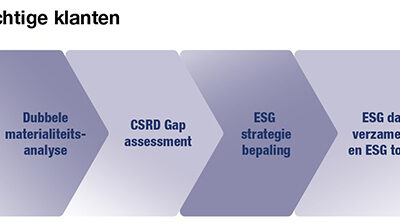The necessary changes will be effective as of July 1st. As an employer what do you need to consider? The minimum wage rates and deadlines for usage of vacation days are items that need to be looked at.
1. Changes to minimum wage
 The amounts specified as the minimum wage apply to an entire working week. This is usually 36, 38 or 40 hours per week. This depends on the sector where your company operates and any possible CAO arrangements in this sector. As of July 1st, the minimum wage will be 1.03% higher than in the first half of 2018. This raises the gross minimum wage to €1,594.20 per month, €367.90 per week and €73.58 per day.
The amounts specified as the minimum wage apply to an entire working week. This is usually 36, 38 or 40 hours per week. This depends on the sector where your company operates and any possible CAO arrangements in this sector. As of July 1st, the minimum wage will be 1.03% higher than in the first half of 2018. This raises the gross minimum wage to €1,594.20 per month, €367.90 per week and €73.58 per day.
A lower minimum wage applies to younger people, as shown in the table below.
| Age | Per month | Per week | Per day |
| 22 and older | € 1,594.20 | € 367.90 | € 73.58 |
| 21 | € 1,355.05 | € 312.70 | € 62.54 |
| 20 | € 1,115.95 | € 257.55 | € 51.51 |
| 19 | € 876.80 | € 202.35 | € 40.47 |
| 18 | € 757.25 | € 174.75 | € 34.95 |
| 17 | € 629.70 | € 145.30 | € 29.06 |
| 16 | € 550.00 | € 126.95 | € 25.39 |
| 15 | € 478.25 | € 110.35 | € 22.07 |
2. Increased checks on freelancers
If you hire a third party, or they make themselves available to you as an independent service provider, there is a risk that the tax authorities see the agreement as employment. This can be the case during long term assignments. You can prevent this by working with an agreement template.
The tax authorities have made it known that no exceptions will be made, and fines will be issued if no taxes or insurance contributions are made while there is evidence of employment. The tax office will enforce instances of malpractice. As of July 1st 2018, the authorities will no longer only focus on the most serious cases, but on other instances too. The tax authorities can punish malpractice of they can prove any of the following:
- There is evidence of (fictional) employment
- There is evidence of bogus self-employment
- There is evidence of deliberate false self-employment
3. Working Conditions Act: transition period to end
As of 1st July 2017, a new Working Conditions Act came into effect. An example of a change is that employers now have the right to anonymously refer an employee to a company doctor without their consent, even if there is no evidence of illness or absenteeism. There is a transition period of 1 year for employers, allowing existing contracts detailing working conditions to be adjusted. During this transition period existing contracts can be renewed or provided with a supplement. This transition period expires on July 1st 2018, and from that date onwards all employers must be aligned to the new demands of the Working Conditions Act.
4. Legal deadline regarding vacation days
If your staff still have outstanding vacation days from 2017, these must now be used by July 1st 2018, as per the new rules. If not, they will be forfeited, unless an exemption applies.
In the following cases the unused vacation days will be forfeited after 5 years:
- If the employee was not able to take the vacation days in time. For example, due to illness, or because the employer made it impossible for the employee to take a (or enough) vacation.
- If the employee has more vacation days than legally stipulated.
5. Commencement of own risk bearing WGA
You can become an own risk bearer for the WGA (Werkhervatting Gedeeltelijk Arbeidsgeschikten – work resumption for the partially disabled). This means that from the start of the WGA insurance you carry the risk for partial inability to work and temporary complete inability to work of your (ex) employee, or that you insure this privately either fully or partially. You also carry the risk for death benefit payments of one-month WGA to relatives of employees with a WGA insurance who fall under the own risk clause.
Because you accept these risks as a risk bearer for the WGA, you do not have to pay the premium component WGA of the sector premium (WHK).
You are required to submit a request to become an own risk bearer for WGA to the tax authorities. You can begin bearing the own risk for WGA on either January 1st or July 1st. Your request must be received by the tax authorities at least 13 weeks prior to the commencement date. If you are considering becoming an own risk bearer as of January 1st 2019, you would need to submit your request by October this year. It is wise to determine in advance if this action is interesting and if you can meet the conditions that are applied. We are of course happy to assist with this.


